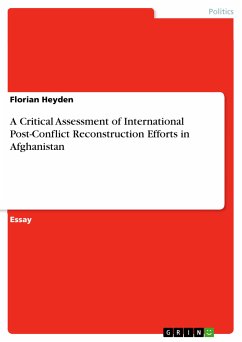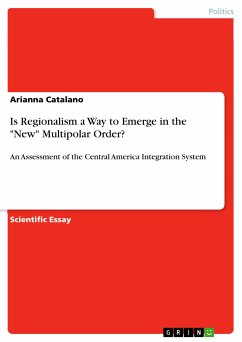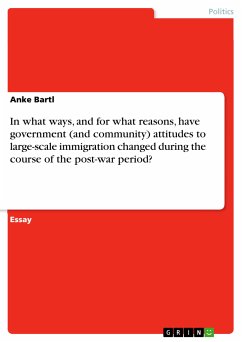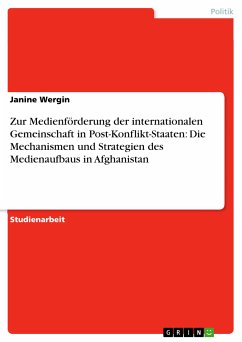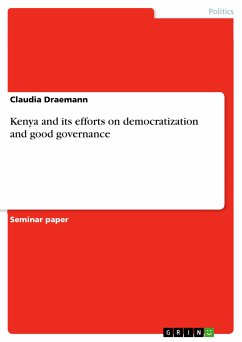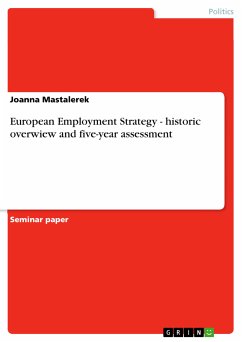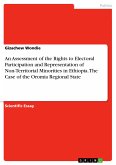Essay from the year 2006 in the subject Politics - Region: Far East, grade: Distinction - very good, King`s College London (Department of War Studies), course: Conflict, Security and Development, language: English, abstract: With the adoption of a new constitution in 2004, Afghanistan emerged anew as a member of the international community after decades of anti-Soviet jihad, interfactional and interethnic civil war, and wars of conquest and resistance by and against the radical-Islamic Taliban movement. While clearly every society emerging from armed conflict requires some degree of reconstruction, the needs of Afghanistan following allied intervention in 2001 have been by far beyond the ordinary − after a quarter-century of armed conflict the country’s entire social, political and economic infrastructure had been destroyed, while war left Afghanistan facing the worlds largest refugee population. It has now been almost half a decade since the fall of the Taliban and billions of dollars have been pledged for reconstruction by the international community. Judging from numerous indicators, it appears that Afghanistan is on its way to be once again a "functioning state" − we will critically assess if this is really the case by considering socio-historical factors of Afghanistan′s current situation such as historical segmentation of elites and the legacy of the USSR′s invasion, followed by a critical discussion of post-conflict reconstruction efforts as well as underlying structural problems undermining these efforts.
Bitte wählen Sie Ihr Anliegen aus.
Rechnungen
Retourenschein anfordern
Bestellstatus
Storno

